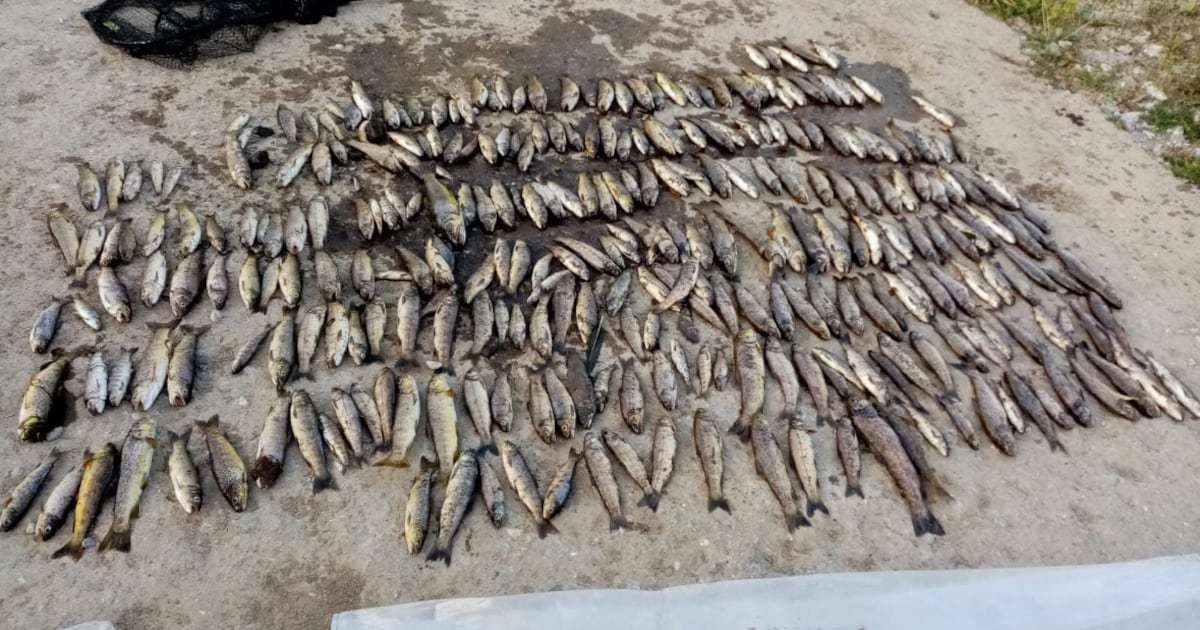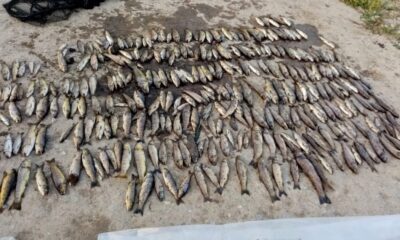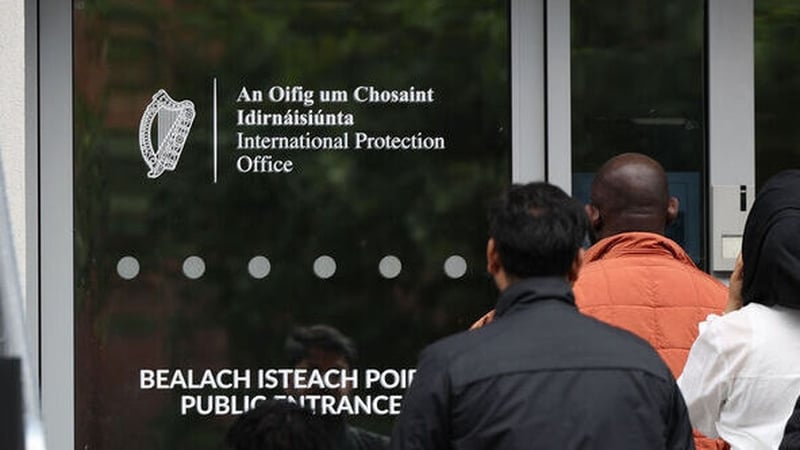Other News
Exact date clocks go back in Ireland as 5pm darkness looms

Read more on post.
With autumn now firmly established, the telltale signs of the changing season are becoming increasingly evident. Mornings arrive with a sharp chill, evenings are closing in more rapidly, and temperatures are gradually beginning to fall.
Alongside the cooler conditions, another seasonal change looms on the horizon – the conclusion of daylight saving time. For many, this development brings conflicting emotions.
On the positive side, we gain an additional hour of rest when the clocks retreat – a delightful bonus, particularly as the mornings grow more bitter. However, on the negative side, earlier sundowns mean extended evenings confined indoors and gloomier journeys home.
This year, the clocks across Ireland will retreat by one hour on Sunday, October 26, signalling the conclusion of daylight saving time. The previous adjustment occurred on Sunday, March 30, when the clocks advanced by one hour.
According to timeanddate.com, sunset today occurs at 7.10pm, declining steadily to 6.54pm by next Saturday, October 4. By Sunday, October 26, the evening will grow dim even sooner, with sundowns occurring at 5.04pm – the day the clocks alter, reports the Irish Mirror.
Mobile phones and digital watches will adjust automatically on Sunday, October 26 at 2am, retreating to 1am, though conventional timepieces will require manual modification. The tradition of “falling back” was initially established to maximise the use of natural daylight.
While mornings grow brighter and provide us with an additional hour of illumination, evenings inevitably grow dim sooner, transforming our daily patterns as the season shifts. All EU member states, bar Iceland which sticks to Western European Time all year round, adjust their clocks at this time.
In 2019, the European Union voted with the possibility of putting an end to Daylight Saving Time after 2021, following a survey that revealed most people would rather not change their clocks twice annually. However, due to the Covid pandemic, this decision was postponed.
EU institutions have yet to make headway on implementing this decision, and the European Commission has stated it has no plans to present a new proposal on the matter to Parliament. Looking forward, next year will see the clocks spring forward on Sunday, March 29, and fall back on Sunday, October 25 – maintaining the familiar seasonal rhythm.
Join our Dublin Live breaking news service on WhatsApp. Click this link to receive your daily dose of Dublin Live content. We also treat our community members to special offers, promotions, and adverts from us and our partners. If you don’t like our community, you can check out any time you like. If you’re curious, you can read our Privacy Notice.
For all the latest news from Dublin and surrounding areas visit our homepage.
Other News
Asylum seekers to be offered up to €10k to drop IP claim
Other News
‘Some big polluter is breathing sigh of relief’: Questions remain over Blackwater fish kill

Read more on post.
At 9.10am on last August 12th, an angler made a call to the Environmental Protection Agency (EPA) to report a large number of dead and ailing fish on the Blackwater river close to Mallow, Co Cork.
Almost simultaneously, Inland Fisheries Ireland (IFI) also contacted the agency to raise the alert.
The EPA dispatched inspectors to three sites on the river within the hour, kick-starting an investigation that would ultimately involve multiple government departments, public bodies and scientific, environmental and health agencies.
But it was too late. Around 42,000 fish were dead or dying. Already the trail that might have led to the cause had gone cold.
The distress that the deaths of so many fish, mostly highly valued salmon and trout, caused among anglers, environmentalists and the wider community has turned to anger and frustration since.
It seems improbable that a multi-agency investigation with experienced personnel, good local knowledge and access to sophisticated laboratory services has been unable to pinpoint the cause of death.
Yet that is the conclusion of the final report on the incident published on Thursday evening.
“The pollutant or the source that caused the fish mortalities has not been identified,” it says.
Tom Ryan, EPA director of enforcement, said afterwards: “Nobody wants to see what happened here.
“This is a terrible, devastating event in a protected water and it is intolerable.
“If we could find the culprit for this, if it’s in our jurisdiction, we certainly would be holding them to account.”
The “culprit”, he believes, could be “something one-off, possible sinister or criminal in nature – or reckless”.
He was thinking of something dumped, washed out or allowed to spill into the river. It was fast-acting and, unfortunately for testers, equally fast to disappear.
The chances of identifying it were already slim when the investigation began.
Marine Institute analysis points to the fish encountering some sort of pollutant on August 5th or 6th – yet no testing of water, fish or potential industrial or wastewater pollution sources was organised before August 12th.
Dead fish were spotted on August 9th, but Inland Fisheries Ireland, the EPA, Uisce Éireann and Cork County Council say they were only notified between August 11th-12th.
There is no single point of contact for a member of the public to call so all relevant agencies can hear and respond.
“Can all these arrangements be improved? Can we learn from this? Of course,” Dr Ryan said. “But reaction is one thing, prevention is what’s key.”
Responsibility for pollution prevention resides in different jurisdictions, however.
The EPA licences large industries and wastewater facilities and polices the pollution they can legally undertake.
County councils permit smaller businesses and are responsible for farm inspections.
Water quality monitoring comes under multiple agencies. Enforcement of standards and regulations is convoluted.
Several licensed operators were non-compliant at the time of the fish kill, including repeat offender, North Cork Creameries, although their breaches were found not to have caused the incident.
Dr Elaine McGoff of the Sustainable Water Network said a shake-up in regulatory authorities was needed.
“There should at least be a 24-hour emergency hotline that gets inspectors on the ground immediately something happens,” she said. “Some big polluter is out there breathing a big sigh of relief.”
Bob Seward of the Angling Council of Ireland said the final report could not be last word on the issue.
“It’s not finished as far as we are concerned. There needs to be lessons learned. There needs to be an evaluation of the processes – for protection and response. This is fire brigade stuff.”
Other News
Major sign of new Covid strain as warning issued over ‘tripledemic’

Read more on post.
As autumn is in full swing, health experts have issued a warning due to the potential threat of a ‘tripledemic’ in Ireland, with cases of Covid, flu and RSV predicted to increase in the upcoming months.
In the past week, there were 541 new Covid cases reported across the country, a significant rise from the 480 reported the previous week. Health officials attribute this surge largely to the XFG variant, also known as Stratus, which now makes up 73% of all known infections in Ireland.
The latest data from the Health Protection Surveillance Centre (HPSC) reveals that Dublin had the highest number of new cases last week with 127, followed by Limerick with 77 and Cork with 53. On the other end of the spectrum, Carlow reported no new infections, while Laois had 2 and Longford had 3. The World Health Organization has categorised Stratus as a “variant under monitoring”, noting that although it doesn’t seem to cause more severe illness, it spreads faster than previous strains – a trend mirrored in Ireland’s most recent Covid data.
Flu and RSV cases remain relatively low, with 24 flu infections reported last week – a decrease from 60 four weeks ago – and just 9 RSV cases, down from 17 the previous week, reports the Irish Mirror. As the three viruses continue to spread, health experts are urging people to get vaccinated.
Caoimhe McAuley, Director of Pharmacy and Superintendent Pharmacist at Boots, said: “The colder months bring a higher risk of viral illness, and vaccines provide protection to help you and those around you, stay well. Flu strains can change from year to year, which means last year’s vaccination may not protect you from this season’s flu strains. At Boots, we’re offering a comprehensive range of winter vaccination services as well as expert advice from our pharmacists to ensure our customers are well prepared for the season ahead.”
Currently, the National Immunisation Advisory Committee in Ireland recommends five vaccines for older adults. Covid, flu, and pneumococcal are fully funded, but shingles and RSV are not. Covid symptoms often mimic those of the flu or a cold, including fever, cough and fatigue, making it difficult to identify.
However, doctors say the most common early sign of the Stratus variant is a hoarse or raspy voice – a symptom that could help distinguish it from seasonal flu. Other early signs include sore throats, blocked noses, digestive issues and exhaustion.
Dr Nye told Mirror UK: “In most ways, it’s almost identical. However, people with this version tend to get very sore throats and a hoarse voice, compared with the other more general symptoms like cough, temperature and aches.”
Meanwhile, Dr Kader, who shares health advice on TikTok as @ask. doctor.k, added that the new variant often starts with ear, nose and throat symptoms before affecting the digestive system. He said: “Here’s what you need to know about the new Covid variant. It’s called Stratus or XFG, and actually the symptoms are a little bit different when compared to the previous variants.
“The new variant seems to be starting with ear, nose and throat symptoms, so most people are complaining about a really hoarse voice or a super sore throat. It also seems to present with more GI symptoms. A lot of people are complaining about nausea, vomiting, bloating [and] acid reflux.”
Whilst infections are often milder, Dr Kader cautioned that this variant is extremely transmissible, stating: “You may have noticed that everyone is getting sick this week, and we’ve seen a huge rise in Covid cases in hospital patients, and part of the reason why infections are spreading fast is because the weather is changing, it’s getting a bit colder, people are staying indoors more and just passing the bugs to each other.”
Ireland’s official Covid guidance remains unchanged. The HSE said: “If you have any symptoms of Covid and feel unwell, you should stay at home until 48 hours after your symptoms are mostly or fully gone, avoid contact with other people, especially people at higher risk from Covid. You do not need a Covid test unless a GP or health professional tells you to.”
The HSE is reminding the public to be vigilant for all 18 recognised Covid symptoms, which include:
- fever (high temperature – 38C or above) – including having chills
- dry cough
- fatigue (tiredness)
- loss or change to your sense of smell or taste – this could mean they’re completely gone or just different to normal
- nasal congestion (runny or blocked nose)
- conjunctivitis (also known as red eye or pink eye)
- sore throat
- headache
- muscle or joint pain (aches and pains)
- different types of skin rash
- nausea or vomiting
- diarrhoea
- chills
- dizziness
- shortness of breath or breathing difficulties
- loss of appetite
- confusion
- pain or pressure in the chest
Join our Dublin Live breaking news service on WhatsApp. Click this link to receive your daily dose of Dublin Live content. We also treat our community members to special offers, promotions, and adverts from us and our partners. If you don’t like our community, you can check out any time you like. If you’re curious, you can read our Privacy Notice.
For all the latest news from Dublin and surrounding areas visit our homepage.
-
Politics4 days ago
European Parliament snubs Orbán with vote to shield Italian MEP from Hungarian arrest
-
Culture3 weeks ago
Life, loss, fame & family – the IFI Documentary Festival in focus
-
Culture2 months ago
Fatal, flashy and indecent – the movies of Adrian Lyne revisited
-
Environment1 week ago
Key oceans treaty crosses threshold to come into force
-
Health5 days ago
EU renews support for WHO’s Universal Health Coverage Partnership
-
Culture1 week ago
Farewell, Sundance – how Robert Redford changed cinema forever
-
Culture4 days ago
Twilight at 20: the many afterlives of Stephenie Meyer’s vampires
-
Culture4 weeks ago
What is KPop Demon Hunters, and why is everyone talking about it?


















































